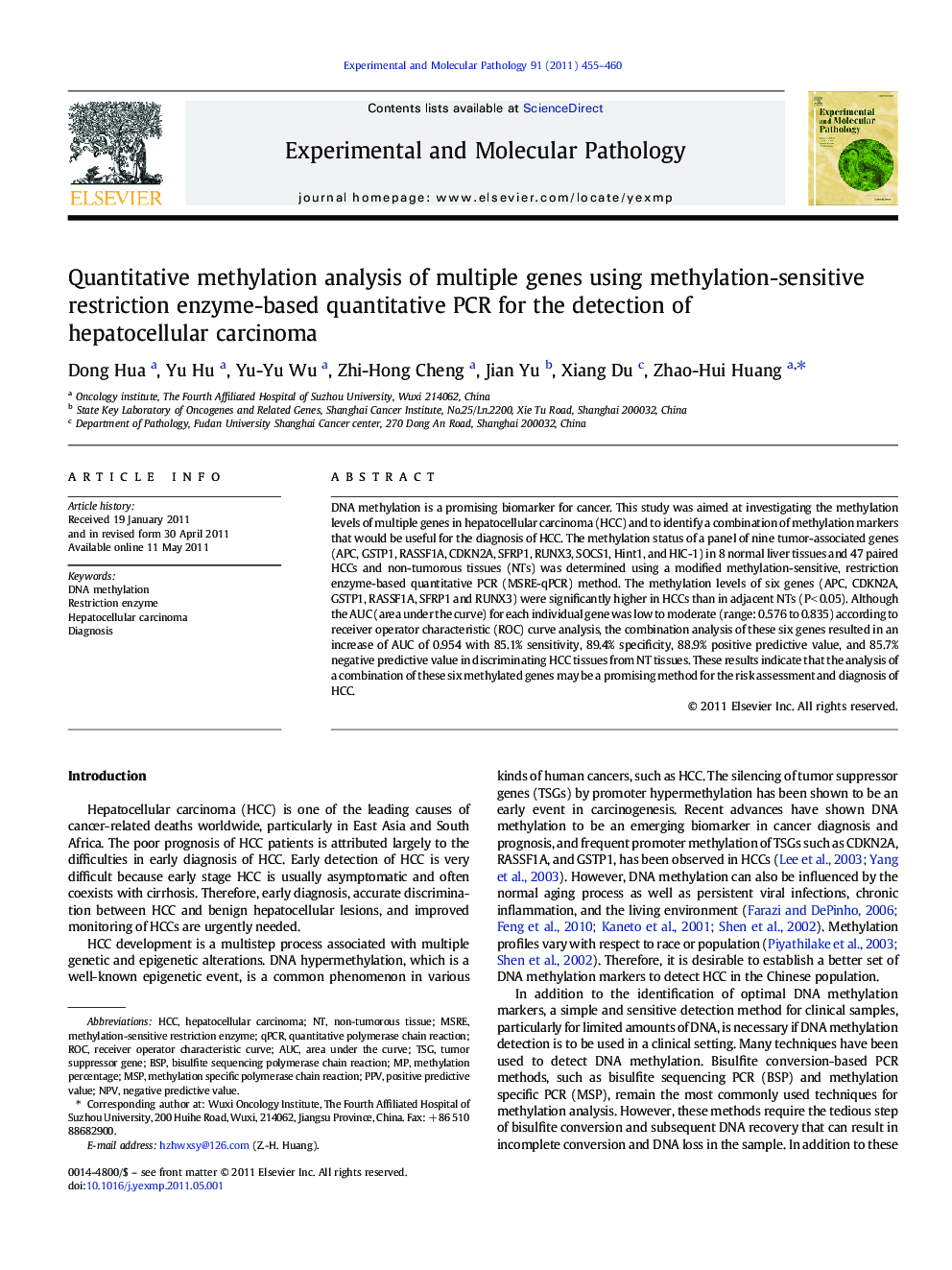| Article ID | Journal | Published Year | Pages | File Type |
|---|---|---|---|---|
| 2775466 | Experimental and Molecular Pathology | 2011 | 6 Pages |
DNA methylation is a promising biomarker for cancer. This study was aimed at investigating the methylation levels of multiple genes in hepatocellular carcinoma (HCC) and to identify a combination of methylation markers that would be useful for the diagnosis of HCC. The methylation status of a panel of nine tumor-associated genes (APC, GSTP1, RASSF1A, CDKN2A, SFRP1, RUNX3, SOCS1, Hint1, and HIC-1) in 8 normal liver tissues and 47 paired HCCs and non-tumorous tissues (NTs) was determined using a modified methylation-sensitive, restriction enzyme-based quantitative PCR (MSRE-qPCR) method. The methylation levels of six genes (APC, CDKN2A, GSTP1, RASSF1A, SFRP1 and RUNX3) were significantly higher in HCCs than in adjacent NTs (P < 0.05). Although the AUC (area under the curve) for each individual gene was low to moderate (range: 0.576 to 0.835) according to receiver operator characteristic (ROC) curve analysis, the combination analysis of these six genes resulted in an increase of AUC of 0.954 with 85.1% sensitivity, 89.4% specificity, 88.9% positive predictive value, and 85.7% negative predictive value in discriminating HCC tissues from NT tissues. These results indicate that the analysis of a combination of these six methylated genes may be a promising method for the risk assessment and diagnosis of HCC.
Research highlights► MSRE-qPCR is an efficient method to quantitate DNA methylation. ► We found that six genes were hypermethylated in HCC. ► Analysis of these genes is valuable for the risk assessment and diagnosis of HCC.
